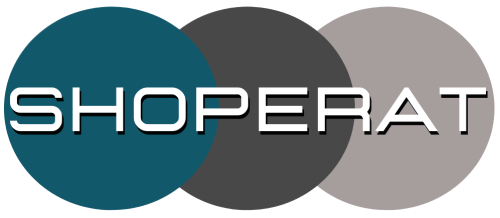Are You Curious About How Collagen Works?
Introduction:
Collagen is a protein that plays a vital role in maintaining the health and integrity of our skin, joints, bones, and connective tissues. It acts as a structural support system, providing strength, elasticity, and flexibility to various parts of our body. If you’ve ever wondered about the inner workings of collagen and how it impacts our overall well-being, you’re in the right place. In this blog post, we’ll delve into the fascinating world of collagen and explore its functions, sources, and ways to enhance its production naturally.
Understanding Collagen:
Collagen is the most abundant protein in our bodies, making up about one-third of the total protein content. It is composed of amino acids, primarily glycine, proline, and hydroxyproline, which form a unique triple-helix structure. This structure gives collagen its strength and stability, allowing it to support and connect various tissues throughout the body.
Functions of Collagen:
- Skin Health: Collagen plays a crucial role in maintaining the youthful appearance of our skin. It provides firmness, elasticity, and hydration, which helps prevent wrinkles and sagging.
- Joint Support: Collagen acts as a cushion and lubricant for our joints, promoting smooth movement and reducing the risk of joint pain and stiffness.
- Bone Strength: Collagen contributes to the structure and strength of our bones, enhancing their resistance to fractures and supporting overall bone health.
- Connective Tissue Integrity: Collagen forms a framework for connective tissues such as tendons, ligaments, and cartilage, ensuring their strength and flexibility.
Sources of Collagen:
While our bodies naturally produce collagen, its synthesis declines with age. However, we can obtain collagen from external sources to support its production:
- Foods: Consuming collagen-rich foods like bone broth, fish, poultry, eggs, and dairy products can provide the necessary amino acids and nutrients required for collagen synthesis.
- Supplements: Collagen supplements, available in various forms such as powders, capsules, and liquids, can be an effective way to increase collagen intake. These supplements often contain hydrolyzed collagen, which is broken down into smaller peptides for easier absorption.
Boosting Collagen Production Naturally:
Apart from external sources, certain lifestyle habits can help boost collagen production naturally:
- A Nutrient-Rich Diet: Maintain a well-balanced diet that includes foods rich in collagen-building nutrients such as amino acids, antioxidants, and vitamin C. These nutrients can be found in fruits, vegetables, nuts, and lean proteins.
- Regular Exercise: Engaging in regular physical activity, particularly exercises that involve weight-bearing or resistance training, can stimulate collagen synthesis. It promotes blood flow, which delivers essential nutrients to the cells responsible for collagen production.
- Sun Protection: Excessive sun exposure can break down collagen fibers, leading to premature aging and damage to the skin. Protect your skin by using sunscreen, wearing protective clothing, and seeking shade during peak sun hours.
- Avoid Smoking and Limit Alcohol: Smoking and excessive alcohol consumption can negatively impact collagen production and accelerate its breakdown. Quitting smoking and moderating alcohol intake can help maintain healthy collagen levels.
To Know the connection between Collagen and Aging Read Here
Conclusion:
Collagen is a fascinating protein that plays a vital role in maintaining the health and vitality of our bodies. From supporting skin elasticity to strengthening joints and bones, collagen is essential for overall well-being. By understanding how collagen works and incorporating collagen-rich foods, supplements, and healthy lifestyle habits, we can support our body’s collagen production and enjoy the numerous benefits it offers. So, embrace the wonders of collagen and take proactive steps towards a healthier you!
